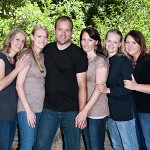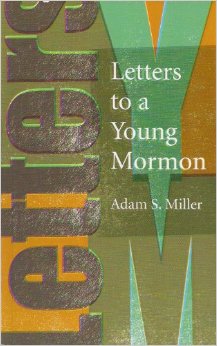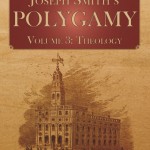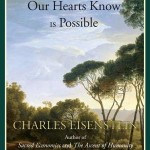The Challenge of Honesty is a compilation of five essays and twelve and devotionals that were written and delivered by Frances Lee Menlove over the course of forty seven years. The titular essay is the book’s oldest, having been written by Menlove as a part of the inaugural issue of “Dialogue: A Journal of Mormon Thought” in 1966. The most recent essays are two which were written specifically for this volume titled “Untangling Faith and Belief: A Modest ‘Trammel Reduction’ Proposal” and “If Not Now, When? Mormon Women and the Priesthood.” Of the devotional sermons, one was originally published as a tribute to Eugene England; the rest are reprints of eleven years of Sunstone Symposium devotionals.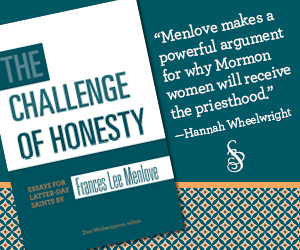
While I have been going to Sunstone and reading Dialogue for years, I have to admit, I have never heard Menlove speak nor had I previously read any of her essays, although I knew of her reputation as a popular speaker. Now, after having completed The Challenge of Honesty, I have to say that I may well be one of Menlove’s biggest fans. The wisdom and spiritual insights that Menlove shares in this volume are truly profound and have already had a great impact on my life. In this review I will share a few of my favorite highlights and some fine nuggets of Menlove’s wisdom from several of the essays in an attempt to whet the reader’s appetites so that they will desire to gorge themselves on the whole book.
The introduction to The Challenge of Honesty, which is written by its editor, the former editor of Sunstone magazine and current host of the Mormon Matters Podcast, Dan Wotherspoon (which is itself worth the price of admission) describes the importance of Menlove’s essay “The Challenge of Honesty” far better than I can. Of it Wotherspoon says, “It provides a non-blinking examination of key aspects of genuine forthrightness, both with oneself and with others. It probes tensions within church institutions and culture, as well as within individual members” (p. x). Wotherspoon then shares several anecdotes of how this essay has been used by a variety of people including lay Mormons, college professors, and even the leadership of the Community of Christ. It is hard to pick just one good quote to share from such a fine essay, but recent events and talks in Mormonism point to just how timely Menlove’s essay from almost 50 years ago still is.
At a time when it is called into question whether or not Mormons are allowed to even have doubts, and in a time when a member of the LDS first Presidency is encouraging Church members to “doubt your doubts” (Dieter F. Uchtdorf, “Come, Join with Us” General Conference sermon from 5- October 2013) it is interesting to contrast this current idea in Mormon thought with what Menlove wrote back in 1966 about what she describes as “the myth of the unruffled Mormon”. She describes this myth as:
The commonly held picture of the Mormon as a complete, integrated personality, untroubled by… doubts and uncertainties … and oblivious to the painful searching and probings of the non-believer. Mormons are taught from Primary on up that they, unlike their non-Mormon friends, know with absolute certainty the answers to the knottiest problems of existence …In reality, the Mormon is also subject to uncertainties and doubts…No one should doubt that in some way, or for some reason, he is also a doubter…
Teachers and parents who explicitly or implicitly encourage the child who has doubts
or problems or personal anguish to turn away from them is training the child in self-deceit. When a Sunday School teacher states or implies to children or teens that their questions are bad, or threatening, or a manifestation of their own personal failure or immaturity, this teacher is erecting a barrier between the children’s public behavior and private worlds, between their need for love and acceptance and their personal integrity…In short, these impressionable children and teens may come to believe that any questions or problems or inner discomforts they may experience are symptoms of defects in their own character. Personal doubts and uncertainties are seen as temptations rather than as challenges to be explored and worked through” (pp. 4-6).
Those lines give one a small taste of the feast that is the essay, “The Challenge of Honesty.” I apologize if that quote is long for a “book review” but it was hard to make it even that short. It is just that good. Because The Challenge of Honesty is a compiled book which employed minimal editorial changes, readers will find that some stories, scriptures, quotes, and ideas come up several times. In other writings or books this might be boring or seen as a weakness but I really enjoyed seeing the consistency of Menlove’s messages over the years and I found insight and strength in the repeated stories and ideas. One such story is an experience of Menlove’s grandfather that occurred about 100 years ago. Her grandfather got into an argument with the Bishop when he tried to explain that it was unsanitary for the whole ward to share one sacrament cup. When the Bishop stated that God would not allow the sacrament cup to make people sick Menlove’s grandfather replied to the bishop, “do you really think that God would have given us brains if he didn’t expect us to use them?” When the Bishop told him to go home and repent, Menlove’s grandfather exclaimed, “Horse feathers!” Eventually Menlove’s grandfather won over John A. Widtsoe and the Church switched to a system of multiple cups. The moral that her grandfather taught to his family from this story was that “even though Church authorities sometimes act like jackasses, the Church has a way of righting itself” (see pp. 23-24 and 110-112). Menlove uses this story to help illustrate the wonders of growing up in a pre-correlation Church, to help to explain the importance of allowing people to ask probing questions in church, and to help get across the idea that we should “never let obedience trump conscience” (p. 111).
Two of the themes that appear in multiple essays in this book are the role of LDS women and the struggle of the LGBT community within the LDS Church. The main focus on the role of LDS women is in chapter four. This is one of the two new essays which is titled “If Not Now When, Mormon Women and the Priesthood.” At 23 pages in length this is the second longest essay in the collection. In this essay Menlove is very through and in depth on her analysis of the subject. She is also very bold. In the second paragraph of the chapter she states, “Should girls and women be ordained to the priesthood? Yes. Let me try to convince you” (p. 65). Menlove, who holds a Masters Degree in Divinity, then proceeds to explore and explain the roles of women in the Bible and early Christian times as understood in the light of modern scholarship. She explains that in the light of recently discovered texts and manuscripts, we now know that “Women played a significantly larger leadership role (in the early Jesus movement) than had previously been thought” (p. 66). She discusses Junia, whom Paul calls an Apostle in the New Testament, and points out that over the years conservative biblical translators have tried to diminish her role and have even tried to turn her into a man! She also brings up Phoebe from the New Testament. In most English translations Phoebe is called a “Servant” but the Greek word describing Phoebe is “diakonos” which *should* be translated as “deacon” – a priesthood office. Menlove covers other translation “errors” as well, including places where the English New Testament words “any man” should actually be translated as “anyone”. While appealing to early Christian history, Menlove points out that one of the criticisms leveled against the early Church was that it was a “religion of women.” She also points out that there are extant records that describe women as performing Christian ordinances and rites that Mormons believe require priesthood, such as baptism (see p. 69).
After her analysis and explanation of biblical and Christian history, Menlove delves into Mormon history. She quotes the famous Gordon B Hinckley interview where he said that the rules could change and Mormon women could get the priesthood but then says that “there’s no agitation for that. We don’t find it…” (p. 75). She then refers to scholars and historians like Quinn and Tullidge to support the idea that in the early LDS Church “Mormon women, as well as men, (held) the priesthood” (p. 75). She also points out the undisputed fact that from the 1840s to the 1940s Mormon women could perform laying on of hands healing ordinances. She discusses slavery, the suffrage movement and the need to share spiritual gifts with all. It is a well thought out, powerful, and thought-provoking essay. It is likely to offend and put off many conservatives and even some liberal Mormons. But I encourage everyone to give it a read through and to consider her arguments. Even if she does not convince you I think that your perspective on the issue will improve and that you will hopefully be more tolerant towards and accepting of those who do agree with Menlove.
The struggles of the LGBT community in Mormonism is discussed in the essays “The Unbidden Prayer” and “Walking the Road to Emmaus.” In “The Unbidden Prayer” Menlove discusses the lessons that she learned from her involvement with a family who had a child born with ambiguous genitalia. Of this family and their experience, Menlove shares that while she was working with this family, she prayed to God and thanked him that this family was not Mormon. Menlove explains that she did this because had the family been Mormon, “The Family: A Proclamation to the World” would have created “a toxic spiritual burden” that would have made it harder for them to accept their child and the trial that they went through. It is easy to see in these essays that acceptance and love for her LGBT brothers and sisters is obviously a major concern for Menlove. In “Walking the Road to Emmaus,” Menlove discusses Bob Reese and his outreach to the Mormon LGBT Community. She also quotes Gary Watts, a doctor and a Mormon who is the father of a gay son and a lesbian daughter. She quotes a Sunstone address by him where he said:
- “What is disastrous is to replace faith in Jesus with belief in Church doctrines. What is disastrous is to assert that those who believe particular doctrines have faith and those who do not believe do not have faith” (p. 60).
- “Apparently God’s comfort with diversity is greater than ours” (p. 93).
- “Loyalty to a country or church should never be uncritical loyalty. Sometimes in the interest of truth, criticism is not only justifiable but also morally required” (p. 112).
- “Remembering our history teaches us that we need not be afraid of controversy, that we need not be surprised by tensions” (p. 124).
- “Self-righteousness is the bane, the destroyer of human relations” (p. 134).
- “Good intentions are not enough. What counts is action. Compassion with action” (p. 159).
- “We are called to see Jesus in other people, even the sick whom we disdain because we believe their illness is a result of their lifestyle, even the prisoner whom we find reprehensible, even the stranger whom we fear, and even the hungry, who after all, should be able to take care of themselves (p. 165).
The last quote that I will share explains Menlove’s beliefs about God:
• The god I don’t believe in is the god who has a few chosen people on this planet and a gazillion
un-chosen people.
• The god I don’t believe in says ‘no’ to girls to passing the sacrament, or blessing the sacrament, or becoming bishops, or stake presidents, or apostles, or prophets.
• The god I don’t believe in is against same-sex marriage and iffy on civil unions.
• The god I don’t believe in says we are living in the last days so there is no need to take care of our planet.
• The god I don’t believe in blesses wars” (p. 191).
As I close this review I wish to say that with The Challenge of Honesty Signature Books is to be commended for producing such a solid and beautifully put together volume. At a time when other publishers often cut corners and use inferior methods and low quality paper to keep costs down, Signature “went all out” when it printed “Challenge.” The dust jacket is well done and designed and the cover is quite nice. The end sheets are decorated with a nice green, yellow, and black design. The pages are printed on a strong stock of paper. The book even includes an orange decorative bookmark ribbon.As I write this review, Christmas time is quickly coming. Soon people will be bombarded by “Black Friday” and “Cyber Monday” ads and people will be counting down the “shopping days until Christmas.” Many Mormons will do their part by visiting their local “mainstream” Mormon booksellers. There they will purchase the latest books by the standard authors and leaders which they will then take home to wrap for gift exchanges and to stuff in stockings. It saddens me to think that The Challenge of Honesty, because it contains “liberal” ideas and was published by Signature Books and not one of the more “standard” Mormon publishing houses, is unlikely to be among the books so shared. This book deserves to be read by Mormons of all stripes and leanings. They will all be challenged by and learn from it. In fact, I would encourage that it be read by all, Mormon or not, liberal or conservative. It will challenge you, but if you read with an open mind, you will grow. Even if Menlove does not convince you or convert you to her way of thinking, you will be a stronger, a better, and a more informed person for having read this book.
I’m a reader in a family of readers. I am not exaggerating at all when I say that we own over 10,000 books. For the last decade we have lived in small towns in Utah and Idaho. It has been a running family joke that we never went to the town library because we owned more books than the library. Books are literally in every room of our house. We have books in cases, on shelves, in cupboards, behind glass, on tables, in baskets, and if I am completely honest we even have reading material in our bathrooms. Why do I overshare this tidbit of personal information? Simply to help you to understand that, with such a large collection of books, only a very select few earn a home and a permanent place of honor on my personal desk. The Challenge of Honesty now has one of those coveted spots and it will now be used on a regular basis in my professional, personal, and religious duties of counseling, coaching, and teaching.
Author’s Note: I originally wrote this review for the Association for Mormon Letters. It and other reviews can be found here.

